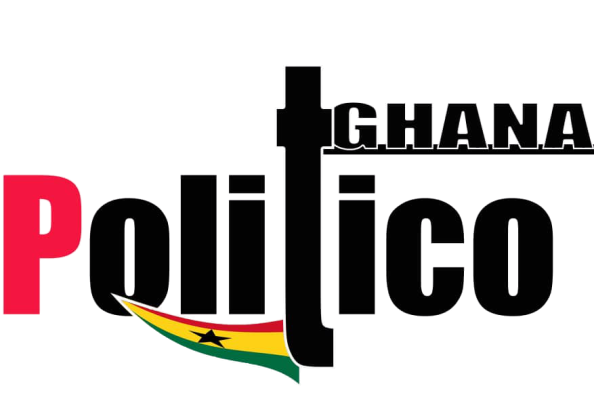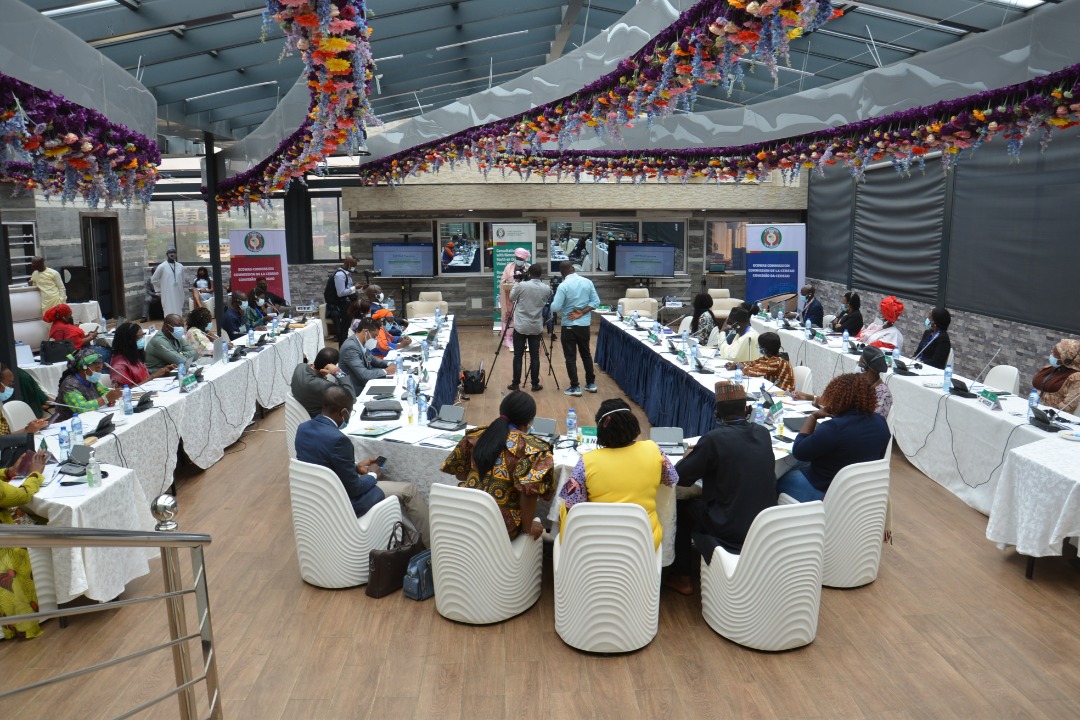ECOWAS Commission has called for more youth and Women participation in its vision 2050, in a two day workshop, held in Abuja, 25th – 26th March, 2050.
The workshop created a platform for ECOWAS to analytically engage with youth and women on the various challenges they face within the West African region that affects their economic development and identified the strategies and initiatives.
It also recommend policies, programmes and projects to address the various challenges which will enhance the Vision 2050 and make it all inclusive.
The workshop promoted a shared understanding of the aims, objectives and mandate of ECOWAS as well as proposed an action plan for effective involvement of youth and women in the design and implementation of ECOWAS programmes and projects and recommend long term plans for the region in terms of the “West Africa, they want to see”. Participants were also sensitized on the key opportunities available in the region, which could be optimized for the benefit of the community as a whole.
The Vice President of ECOWAS Commission, Madam Finda Karoma in her opening remarks, emphasized the importance of the two-day meeting in ensuring that the ECOWAS 2050 development process is participatory and all-inclusive. Hence the need to consult with women and youth, who are the largest and the most vulnerable groups in West Africa.
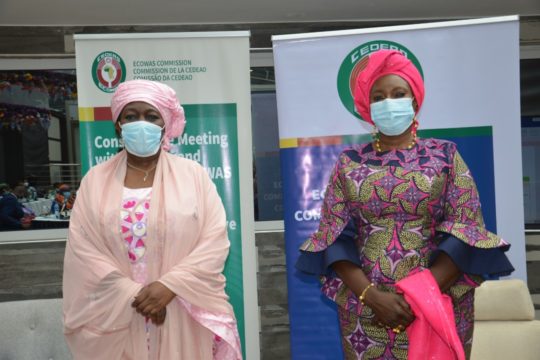
Madam Karoma, stressed the importance of seeing the large population of youth within the region as an asset which could generate demographic dividends. These can be achieved by empowering, motivating and educating the youth so they can be immune to the various vices and exploitations, ranging from drug trafficking to recruitment into terrorist and criminal gangs. It is therefore imperative, as we develop the ECOWAS region’s Vision for next 30 years, to see how we can best address youth unemployment. It is a basic fact that no country or region can develop if the majority of the working age population is unemployed so let the youth see themselves as the solution to various socio-economical problems, she added.
The youth groups such as “Y’en a Marre” in Senegal or the “Balai Citoyen” in Burkina Faso in the consolidation of peace and democracy is a perfect illustration of how the youth can contribute constructively, to the development of their communities and such initiatives should be encouraged and supported through greater access to education and skills development though training in well-equipped facilities like the ECOWAS youth development center in Burkina Faso.
She noted that gender inequalities within the region, continue to persist, despite the progress made by most countries in terms of women’s participation in the economic and social sectors, policy making and leadership.
She recalled the ECOWAS Heads of State and Government’s Declaration on Zero Tolerance to Sexual and Gender-based Violence and the Elimination of All Forms of Violence Against women and Girls in the ECOWAS Region.
With West Africa having some of the highest rate of maternal mortality, low level of women’s education, financial and digital independence, violence against women, child marriages and female genital mutilations playing a large role in hindering women progress, the ECOWAS Leaders have tried to address these various challenges by setting the tone for the promotion of Gender Equality and Women’s Empowerment (GEWE) with the establishment of the ECOWAS Gender Development Centre (EGDC) in January 2003 which is a specialized Agency charged with the responsibility of implementing the various gender based policies and protocols and their harmonization in all member states.
This commitment has further materialized through the adoption of a number of instruments and mechanisms by various ECOWAS entities, including the ECOWAS Gender Policy in 2004, Gender Management System, the Gender Strategic Plan Framework, and the youth and child policies and the Supplementary Act on Equality of Rights between Women and Men for Sustainable Development in the ECOWAS Region.
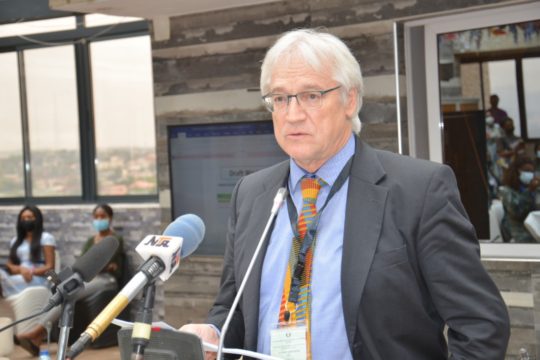
It is therefore clear, that building a brighter future for the region would require addressing issues affecting our women and youth.
She called on the participants to take a critical look at the issues and challenges and propose concrete solutions that would address the challenges faced by women and youth in West Africa.
For my part, I can assure you that your recommendations will be taken seriously and will be incorporated in the Vision 2050 documents for implementation on the ground. Let me also assure you of the ECOWAS Commission’s commitment for your active involvement in the Vision’s implementation process, she ended.
Mr. Joseph Uyi, Head of ECOWAS National Office Nigeria, traced the journey of the transformation of ECOWAS Vision 2020 to 2050, from 2007, when the ECOWAS Heads of State in response to the many persistent challenges facing the region, mandated the ECOWAS Commission to establish a comprehensive roadmap for a new strategy, post vision 2020, that will address these challenges and reflect the community’s aspirations and projections for he next 30 years.
He further highlighted the achievements of the region in the past years, in women and youth empowerment, cross border trading and management, trade liberalisation scheme, establishment of 6 Joint border posts, while reiterating the aim of the workshop as an avenue for participants to be acquainted with the various innovative strategies designed by ECOWAS to address their challenges, especially in access to justice, empowerment, migration, trading and education.
He concluded by stating that the transformation of ECOWAS from “ECOWAS of State, to ECOWAS of People” is non-negotiable, because this impacts directly on the community.
Mr. Ludwig Kirchner, GIZ ECOWAS Cluster Coordinator, in his remarks, hailed the participants for braving the new norms of traveling in accordance with the Covid-19 protocols to be part of this Regional consultations of Women and Youths on the development of ECOWAS Vision 2050 blueprint.
As the West Africa region’s population is growing and with a large part being the youth and women, it is imperative that we redefine our perspective on the role of youth and women as policy developers, economic actors, and key drivers of social change.
He asked the participants to see the workshop as an important opportunity for them to assist ECOWAS in re-aligning the policy trajectory to their realities. You are given a voice to ensure that your generation and the next are heard and your concerns integrated into the Vision pillars that will support the region for the next thirty (30) years, he added
With Vision 2050, ECOWAS and its partners are committed to developing policies that will promote youth and women empowerment. We share the conviction with ECOWAS that now is the time to invest in the people, particularly in the young people of the region, so that they can become agents of economic growth and social stability.
During previous discussions on the topic, ECOWAS has been debating how to put an emphasis on “women, youth and vulnerable” groups. This consultation is an opportunity to voice out your aspirations for the region but more importantly for yourselves, he said.
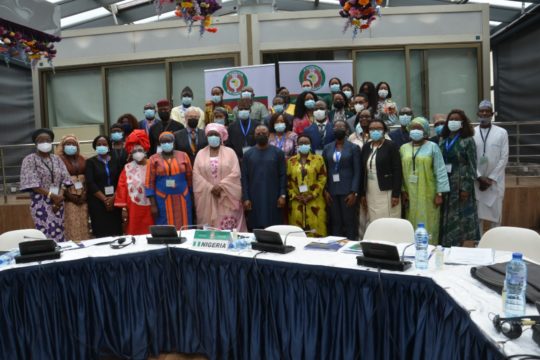
The Nigerian Ministers, for Women Affairs and Social Development, Dame Paulin Tallen and Minister of State for Foreign AffairsMister Zubairu Dada, who was represented by Ambassador Gabriel Aduda, both stressed the importance of the role youth and women will play in drafting the ECOWAS Vision 2050, because they are the engine rooms of every progressive society. They congratulated ECOWAS for this great initiative and for bringing women and youth to the front burner of policy making within the region.
National youth organizations from each member states, ECOWAS Commission staff, representatives of UNECA and GIZ participated in the workshop.
